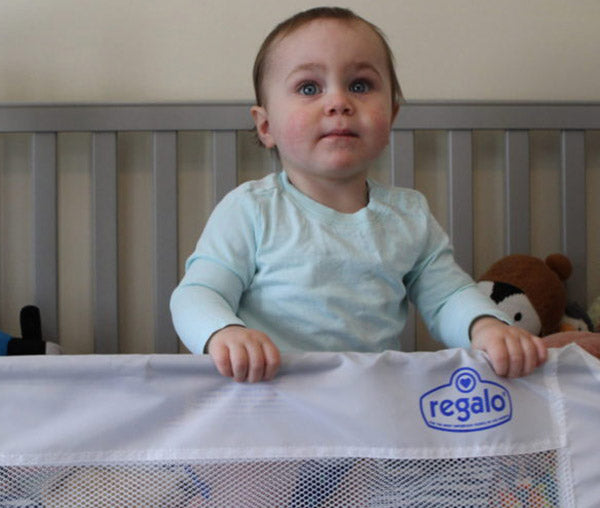
October 30, 2020
How to Help Avoid Bedtime Meltdowns
I was barely showing during my pregnancy when the questions and advice started rolling in. Well-meaning strangers asked me about my sleep training philosophy, but with three months left until my due date, I hadn’t even thought about it yet.
It wasn’t until my daughter was born and I was in a sleep-deprived state, dealing with bedtime meltdowns, that I started frantically searching for answers from two recommended books: Baby Wise and Secrets of the Baby Whisperer.
By the time she turned three months old, we were ready to implement our version of sleep training. Unfortunately, although our method worked and she began consistently sleeping 12 hours a night, she was never happy about going down. She screamed and cried for up to 10 minutes before falling asleep, and often still does to this today (she’s almost two).
I’m still learning, and certainly, do not claim to have this all figured out. That said, these are some of the tips I’ve found helpful to decrease bedtime meltdowns and anxiety while fostering a more peaceful approach to bedtime. It is still teaching a “self-soothe” approach to falling asleep.

Credit: @stephamberlynn
1. Change the routine
At first, we were downright religious about bedtime rituals. Every night we headed upstairs by 6:30 to do bath time, change into jammies, read a few books, put her down and walk out of the room. Any deviation from the routine generally backfired, and sometimes she would fight sleep for several hours if we didn’t get her down by 7pm on the nose. While the routine may seem strict, the rationale was to provide signals to teach our daughter that she needed to stay asleep overnight. However, after she learned these cues, we found the routine stopped being relaxing and started being stressful as she dreaded bedtime right around the corner.
Over time, we became confident that she would fall asleep with or without the strict routine, so we loosened up. Instead of reading books in the rocking chair, we reserved the ten minutes before bed to sing lullabies. When she got tired of that after a few weeks, we laid her down and told her made-up stories standing over her crib. Whenever she made it clear that she didn’t like something, we’d try something new, like rubbing her back while talking about her day.
Bottom line: switching up our bedtime rituals helps keep her content in the process, helps with bedtime meltdowns, and creates a more peaceful experience for everyone involved.
2. Try reasoning
I work from home and have hired help a few days a week. At first, our nanny could hardly stand it when our daughter screamed going down for a nap, even if it only lasted for a few minutes. One afternoon, she came downstairs and I didn’t hear a peep coming from the nursery. When I asked our nanny how she did it, she said she simply asked the baby not to cry. It worked!
At least in my experience, kids act differently with people other than mom and dad, so I was skeptical that the approach would be as effective coming from me. I tried anyway, reasoning with her when she became upset. I was pleasantly surprised that it helped! Did she still cry? Yes. Was she less upset and the crying stopped sooner? Also, yes. Progress!
Now that she’s getting older, she truly understands most of what I tell her. I’ve discovered that if I take the time to explain what’s happening and remind her of all the fun things we will do together in the morning, she isn’t as furious when I leave the room.


Credit: @abbeydreamer
3. Trust and realize that this too shall pass
The anxiety isn’t just on my daughter’s side of things, I am affected too. I would absolutely prefer for her to peacefully fall asleep and leave the drama behind. That said, I have to keep in mind that this phase will eventually pass. To get through this season, I lean on my own intuition and trust that I’m doing the right thing for my daughter. Even if she is upset for a few minutes before falling asleep, I know I’m addressing her needs and doing what’s best for her, even if she doesn't like it at the moment. It’s all part of this confusing, complex world we call parenting.
How do you avoid bedtime meltdowns and resistance? I’d love to have more techniques on hand, so please let me know in the comments.